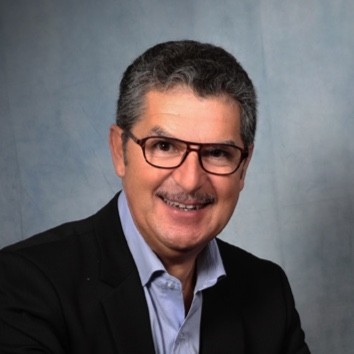Everyone has a different story on how their entrepreneurial career began, could you tell us about yours?
After more than 40 years in IT sales in Switzerland, I decided to become an independent mentor, at the age when many people retire. So, back in June 2020, I started my new career as a business development mentor
Please share with us a unique challenge you faced in your early career?
The main challenge was to define my offer, not too broad, not too specific. It took some time before I found my way, feeling comfortable and clear. I help entrepreneurs to go to the upper level, individually and company wise.
Are you in Board of Directors of European Mentoring and Coaching Council..tell us about it.
The EMCC exists to develop, promote and set the expectation of best practice in mentoring, coaching, and supervision globally for the benefit of society. In Switzerland, we have members in the three main regions and the Board is in charge of developing the presence of EMCC and setting up the right procedures to help coaches and mentors to become more professional and respect ethical rules.
How do you personally define “mentoring”? In your opinion, what are the factors that play into successful mentorship?
Mentoring consists of helping individuals (from CEOs to managers) and organisation to reach an upper level, depending on their objectives. A mentor is three-fold : coach, trainer and consultant and he/she has to navigate from one posture to the other according to the needs of the mentorees.
Successful mentorship happens when the communication channel is created, the convention clearly defined and the objectives and expectations well understood by both parties.
“Then, it is the magic of the relationship that makes it successful”
Do you believe there is anything missing from mentoring startups today?
First of all, I would say that not many companies know what a mentor does and proposes and which benefits they can get from such collaboration.
Startups are mainly focused o collecting funds to start their business and develop their products and solutions. Not many founders do have the « go-to-market » capabilities or the leadership over their organisation.
Have you had any important mentors in your life that have helped you reach where you are today? If so, what’s the benefit of having such mentors?
In Greek mythology, Mentor is the tutor of Telemachus and the friend of Odysseus, who on the day of his departure was entrusted with the care of his entire household. By assimilation, a Mentor is an experienced, attentive and wise advisor who is trusted completely.
I have had many mentors in my life, but regarding the current business, two persons did help me a lot : my first coach, Guy Anastaze, who guided me through the jungle of my ideas and whishes to find my WHY and Nathalie Sabrina Dahl who helped to position myself and better define my business offer.
The main benefit of having a mentor resides in the external view of what is happening and the quality of their questions help you to find the right reason for doing things. It is also a source of motivation.
How can you bring value to the startups you are mentoring? Is there something that particularly inspires you?
Exchanging with managers, listening to their desires, challenging their decisions result into a fruitful growth of their company culture consciousness and importance of leading the colleagues to the right destination.
What particularly inspires me is the new challenge represented by each client, the enthusiasm to channel and the trust that is generated by the periodical contacts.
What are some of the strategies that you believe have helped you grow as a person?
First, I had a desire to become independent. But I also had the humility to understand I could not achieve my goals alone. Asking for help was my first good decision. Then, continuous efforts and persistence generate results. I am growing every day thanks to the contacts I have and my curiosity to discover new ways of helping people, learning and trying.
What advice would you give young entrepreneurs who want to have a successful career?
That’s a tricky question. A young entrepreneur should first define what he wants to do and imagine where he wants to be in one, three and five years. He also has to be clear about what he likes and what he does not like. Finally, he needs to focus on few products and services and put together the elements to become excellent. A mentor can help this young entrepreneur to benefit from his experience and know-how in order to save time and avoid major mistakes.
Recommend a “must-read” book for founders?
There is so much to read! For the ones who are not very familiar with sales, I would suggest « Authentic Selling » by Guy Anastaze (Panoma Press Ltd) and « The Psychology of Persuasion » by Robert Cialdini (William Morrow).
Any final words of wisdom that you would like to give to aspiring entrepreneurs?
“Dare to undertake, trust yourself, persist, ask for help when necessary, be ambitious (what I want to achieve) and humble (what I know)”









